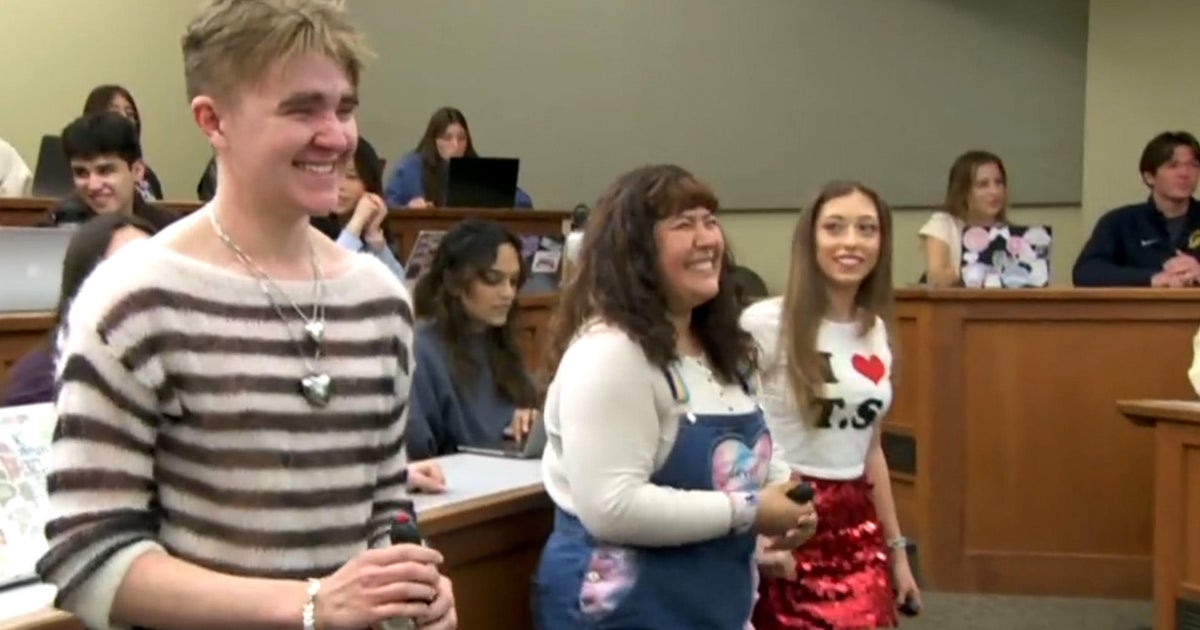A hard lesson for Jane Sanders and small colleges
Only one bidder showed up at a Wednesday auction to sell the last piece of property owned by Burlington College, a small liberal arts college that's now defunct -- and the center of an FBI investigation.
The auction marked a quick end -- over in five minutes when a local bank offered less than the college still owed -- to the college's ambitions. But in other ways, Burlington College's legacy may live on. And not only because of the FBI probe into a loan obtained for a land deal by former college president Jane Sanders but from the lessons it offers small colleges trying to carve out a niche.
Burlington College probably wouldn't be known nationally if it weren't for the involvement of Sanders, the wife of Senator Bernie Sanders, I-Vermont. The college had an enrollment of fewer than 200 students, tiny by the standards of most higher-education institutions, but it had visions of tripling enrollment.
Key to that was a 2010 purchase of lakefront property on Lake Champlain with a hefty price tag of $10 million, a deal that was orchestrated by Jane Sanders.
At the time, the purchase raised eyebrows in Vermont because of the school's small operating budget and enrollment. Burlington College was dwarfed by the University of Vermont, located only two miles away but with an enrollment of almost 12,000 students.
But another issue was brewing: a decline in America's population of college-aged adults. With the number of 18- to 24-year olds projected to drop through 2021, colleges are now scrambling to compete for a smaller pool of students.
It's a turnabout from the heady days of the early 2000s, when the millennial cohort was entering college and bolstering the number of enrolled students. To be sure, not all regions are experiencing the demographic shift to the same degree, noted Ken Redd, director of research and policy analysis at the National Association of College and University Business Officers (NACUBO).
"A lot of small private schools in New England will feel the effects of these trends more than in the West," Redd said. "The competition for students is just really high, but it's more intense for smaller colleges."
Burlington College represents just one of several colleges that have closed or merged with other institutions in recent years, partly due to the financial pressures of competing with larger universities amid tough demographics. New Hampshire's Mount Washington College shuttered in 2016 due to declining student enrollment, while Massachusetts' Marion Court College closed in 2015 due to financial pressures.
On top of a shrinking pool of college-age students, more families are questioning the value of a college degree amid the past decades' rapid tuition increases. In a 2015 report, Moody's predicted the number of colleges closing due to financial struggles would triple by 2017, while smaller colleges would struggle with declining enrollment.
"They are at the beginning of those trends right now," Redd said. "There are a number of small private colleges, and a number in New England, that have already closed or are contemplating mergers and those kinds of things."
Burlington College's step of taking on a land purchase or a building project seems unusual simply because smaller colleges typically first focus on refining their marketing plan or enrollment strategies, Redd said.
"Buying properties -- that tends to be extremely expensive," he added. "The majority of the schools in our study are looking at their outreach, looking at new academic programs, to both entice students to come and to keep them enrolled."
Private colleges generally offer bigger tuition discounts to incoming freshman than larger research universities, which often have deeper pockets, Redd said. His group's annual survey of college discounting found it reached a record-high rate of 49.1 percent, compared with 38 percent in the 2005-06 academic year. Discounting reflects the financial aid provide by a college to students and their families, which can be based on financial need or merit.
Both Bernie Sanders and Jane Sanders have hired attorneys amid the investigation, which stemmed from a complaint that accused Jane Sanders of distorting donor levels in the loan application to purchase the 33-acre property. Regardless of the outcome of that investigation, it doesn't change the fact that Burlington College made an expensive, risky bet on an expansion that didn't pan out.
On Wednesday, the auction started the bidding at $5 million but failed to entice a single bidder, according to news site VTDigger.com. People's United Bank, the firm that loaned the money for the 2010 purchase, stepped in with the sole bid, at $3.1 million.
"I did think that we had a business plan that was going to work. We just ran out of time and money," former college trustee Jane Knodell told VTDigger. "This is the very last chapter of the book."



